Exploring the Best Fasting Foods for Optimal Health and Vitality
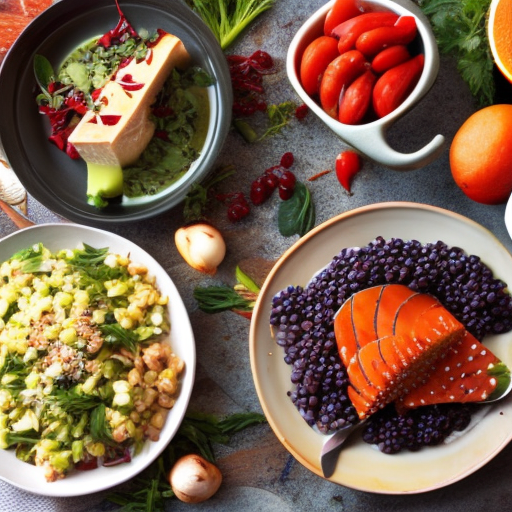
Exploring the Best Fasting Foods for Optimal Health and Vitality
Understanding Fasting and Its Benefits
Fasting has been practiced for centuries to cleanse the body, improve overall health, and promote longevity.
Fasting is basically choosing not to eat for a certain time, giving your body a chance to chill out and start fresh.
There’s a whole menu of fasting options out there, like intermittent fasting, water-only fasts, or juice cleanses – each with their own rules and health perks.
One of the basic benefits of fasting is its ability to progress autophagy, the body’s typical course of cell restoration and revival.
Grasping the basics of fasting and its perks can help folks decide if they should weave it into their lifestyle for top-notch health and vigor.
Forgoing food for certain periods not only cranks up your metabolism and sharpens your mind, but it might also add a few more years to your life.
In any case, fasting assists control with blood sugar, lessen inflammation, and foster weight control.
What’s more, fasting is additionally attached to better heart wellbeing and a lower opportunity of long haul sicknesses like diabetes and cancer growth.
When you fast, your body gets a chance to chill from digesting all the time, which lets it spend more energy on cleaning up and fixing itself – this can really boost your health.
Types of Fasting Diets
There are several popular fasting diets that individuals can choose from based on their preferences and health goals.
Intermittent fasting, for example, involves cycling between periods of eating and fasting, with popular methods such as the 16/8 method, where individuals fast for 16 hours and eat within an 8-hour window.
Another approach is the 5:2 diet, which involves eating normally for five days of the week and drastically reducing calorie intake for the remaining two days.
Water fasting, on the other hand, requires consuming only water for a designated period, while juice fasting involves consuming only fruit and vegetable juices.
Picking how you fast depends on your goals and situation—juice fasting gives nutrients but water fasting promotes full cleansing, yet both require checking with your doc and taking it slow, so you stay healthy.
It’s vital to observe that not all fasting food sources are good for everyone, and individuals should talk with a medical care proficient before setting out on a fasting schedule, especially when they have a few sicknesses or are on prescriptions.
Furthermore, it’s essential to move toward fasting with an unmistakable mentality and keep up from over constraint or difficulty.
Fasting isn’t just about skipping meals, it’s a health boost journey – so tune into your body’s needs and tweak as necessary for a positive, sustainable experience.
But when you’re fasting, the foods you eat during your eating window are super important for getting enough nutrients and keeping your body healthy, so try to go for whole foods like fruits, veggies, lean protein, and complex carbs instead of processed stuff.
While you’re fasting, picking the right food sources to eat during your non-fasting hours is significant — it helps keep you healthy and ensures you get the best from your fasting.
Choosing foods packed with vital nutrients, like vitamins and minerals, is a big deal because they feed your body what it needs to fix itself and stay fresh.
To support their overall health and make fasting more effective, folks should focus on eating natural foods like fruits, veggies, lean proteins, good fats, and complex carbs.
Picking the right grub during your fast can really give your body the fuel it needs, keeping you sharp and on top of your game.
Eating foods packed with nutrients can offset any nutritional gaps that might pop up due to eating less while fasting.
It’s critical to focus on food varieties that are plentiful in fundamental nutrients like L-ascorbic acid, vitamin D, omega-3 fatty acids, and fiber, as these assume an essential part in supporting immune function, bone wellbeing, and digestive health.
Nutrient-Dense Foods for Fasting
Incorporating a variety of nutrient-dense foods into one’s diet during fasting periods can help promote overall health and vitality.
“Berries, oranges, and apples pack a punch with their rich mix of vitamins, antioxidants, and fiber that are key for cell function and overall health.”
Stuff like leafy greens, broccoli, and bell peppers are packed with vitamins, minerals, and cool stuff called phytonutrients that help cleanse your body and lower inflammation.
Including lean proteins such as chicken, turkey, fish, and tofu can provide the necessary amino acids to support muscle maintenance and repair during fasting.
For brain health, hormone production, and overall cell function, it’s key to get healthy fats from stuff like avocados, nuts, seeds, and olive oil.
Complex carbohydrates from whole grains, legumes, and starchy vegetables provide sustained energy and fiber to support digestive health during fasting periods.
When you zero in on eating a variety of good-for-you foods, you’re not just meeting your nutritional needs but also supercharging the health benefits that fasting can bring to your life.
Hydration and Fasting
Proper hydration is essential during fasting periods to support overall health and well-being.
While going without food, it’s critical to keep up with sufficient liquid consumption to forestall drying out and uphold the body’s regular detoxification processes.
When you’re fasting, water is your best buddy—it keeps you cool, helps get nutrients where they need to go, and flushes out any bad stuff.
Also, don’t forget you can jazz up your fasting routine with things like herbal teas and infused waters – they not only quench thirst but add a little flavor to the mix too.
Incorporating electrolyte-rich beverages such as unsweetened coconut water or electrolyte-enhanced water can help maintain electrolyte balance and prevent dehydration during fasting.
It’s critical to pay attention to the body’s thirst signs and consume liquids on a case by case basis to help your general hydration and well-being.
When you’re on a fast, staying hydrated is key because it fuels functions like digestion, circulation, and toxin removal.
Preparing Meals for Intermittent Fasting
When practicing intermittent fasting, thoughtful meal preparation during eating windows can help individuals make the most of their fasting experience and support their overall health and well-being.
Crafting meals packed with various wholesome foods – think lean meats, fruits, veggies, and good fats – is a smart move to meet your nutrition goals and keep your energy up when you’re fasting.
Complex carbs like whole grains give you long-lasting energy to help you ace that exam or crush your workout.
When you’re planning meals for intermittent fasting, aim to whip up dishes that are both tasty and nutrient-packed – this’ll help keep your health on point and your energy levels high.
Including a combination of lean proteins, healthy fats, and complex carbohydrates can help individuals feel satiated and energized throughout the fasting period.
Throwing in a blend of brilliant fruits and veggies can spice up your meal, yet in addition load you with lots of nutrients, minerals, and cell antioxidants – essential for cell wellbeing and in general health.
Best Fasting Foods for Various Fasting Methods
The choice of fasting foods can vary based on the specific fasting method being practiced.
For example, during the eating window of an intermittent fasting regimen, individuals may opt for lean proteins such as grilled chicken, salmon, or tofu, paired with a variety of colorful vegetables and a source of healthy fats such as avocado or olive oil.
Including a serving of complex carbohydrates from whole grains or legumes can provide sustained energy and support digestive wellness during the fasting period.
For those following a water fasting approach, refeeding should be approached with caution, focusing on easily digestible foods such as clear broths, vegetable soups, and herbal teas to gradually reintroduce nutrients to the body.
Juice fasting basically means you’re chugging down a rainbow of fresh fruit and veggie juices, packed with all sorts of vitamins, minerals, and antioxidants that help your cells fix themselves up and feel brand new.
It’s important to emphasize the consumption of whole, unprocessed foods and avoid highly processed or sugary items when breaking a fast to support overall health and vitality.
Incorporating Fasting Foods into Your Diet Plan
Incorporating fasting foods into one’s diet plan requires thoughtful consideration of nutrient density, balance, and variety to support overall health and well-being.
Lean into nutrient-dense whole foods like fruits, veggies, healthy fats and proteins to get the vitamins and minerals you need while fasting.
Focusing on fresh fruits, veggies, lean meats, good fats, and whole grains can give your body the nutrition it needs while fasting to stay healthy and energetic.
By incorporating fasting food sources into your eating routine course of action, individuals can ensure that they are supporting their body’s ordinary detoxification processes, propelling cell renewal and rejuvenation, and improving their overall health and well-being.
Keeping an eye on how much you eat, when you eat and the nutrient mix of your meals can really boost your fasting journey, keeping both mind and body firing on all cylinders.
It’s fundamental for approach fasting food sources with an emphasis on sustenance, equilibrium, and manageability to advance long haul well-being and liveliness.
To spice things up and get all the nutrients you need, people doing intermittent fasting can whip up yummy, filling meals like veggie omelets and chicken salads with avocado during their eating window.
Including fasting-accommodating recipes into one’s meal arranging can mix it up and exhilaration to the fasting experience while giving fundamental nutrients to help by large your health and vitality.
For example, a nutrient-dense breakfast option for intermittent fasting could include a vegetable omelet made with bell peppers, spinach, and tomatoes, paired with a side of mixed berries for a dose of antioxidants and fiber.
For a satisfying lunch during the eating window, individuals can enjoy a grilled chicken salad with mixed greens, avocado, and a drizzle of olive oil for healthy fats.
For those following a water fasting approach, incorporating homemade vegetable broth or herbal teas during refeeding can provide warmth, hydration, and essential nutrients to support the body’s natural detoxification processes.
Juice fasting-friendly recipes may include a variety of fresh juice combinations such as kale, cucumber, apple, and lemon for a refreshing and nutrient-packed beverage.
But we can easily rustle up some yummy and nutrient-rich recipes to help us stay fit during our fasting periods.
Conclusion, what you eat while fasting is key to your overall health and energy levels; grasp the principles of fasting, choose nutrient-packed foods, keep hydrated and you’ll not only make the most out of your fast but also promote cell repair and rejuvenation for a healthier life.
So, when you’re fasting, the foods you choose to eat really matter for keeping your health and energy levels up.
By figuring out the standards of fasting, choosing nutrient-dense foods, and focusing on hydration, people can take advantage of their fasting experience and backing their body’s natural detoxification processes.
Whether practicing intermittent fasting, water fasting, or juice fasting, incorporating a diverse array of whole, unprocessed foods can help individuals meet their nutritional needs and promote cellular repair and rejuvenation.
When you take on fasting with a mindset that prioritizes fueling your body, maintaining equilibrium, and keeping it real for the long haul, you’re setting yourself up for top-notch health and vitality that leads to living life in full color.
Since you have a thorough comprehension of the best fasting food sources for ideal health and vitality, now is the right time to put this information into action.
Whether you’re new to fasting or hoping to upgrade your ongoing fasting routine, consolidating nutrient-dense food sources and fasting-accommodating recipes can uphold your journey toward improved well-being.
Before you go all in on fasting or switch up your food game, it’s key to get a thumbs-up from a healthcare personnel, particularly if you’re managing any health conditions or taking medications. Here’s to embracing the force of fasting food sources and opening your full health potential!
RELATED POSTS
Unlocking the Secret of Iron-Rich Foods in Vegetarian Diets
Embracing a vegetarian diet not only decreases the probability of chronic diseases like heart disease, diabetes, and particular cancers but similarly establishes a healthy weight management scheme.
The Best And Interesting Foods For Optimal Brain Health
Being passionate about maintaining optimal brain health has always been intrigued by the impact of nutrition on cognitive function. Our cerebral mechanism, governing our perceptions, sentiments and conducts, is undeniably the body’s most indispensable entity.
From Thin to Thick: The Best Herbal Supplements for Hair Growth
When it comes to hair growth, many of us are on a never-ending quest for thicker, fuller locks. There is a plethora of products on the market claiming to promote hair growth, but one natural and effective solution to consider is herbal supplements.
FOLLOW DISCOVERY BLOGGER



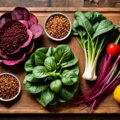
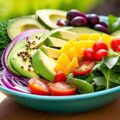

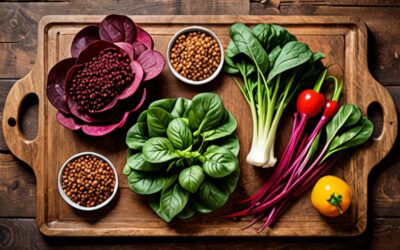

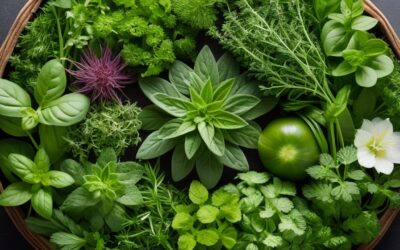
0 Comments